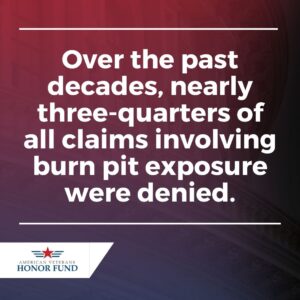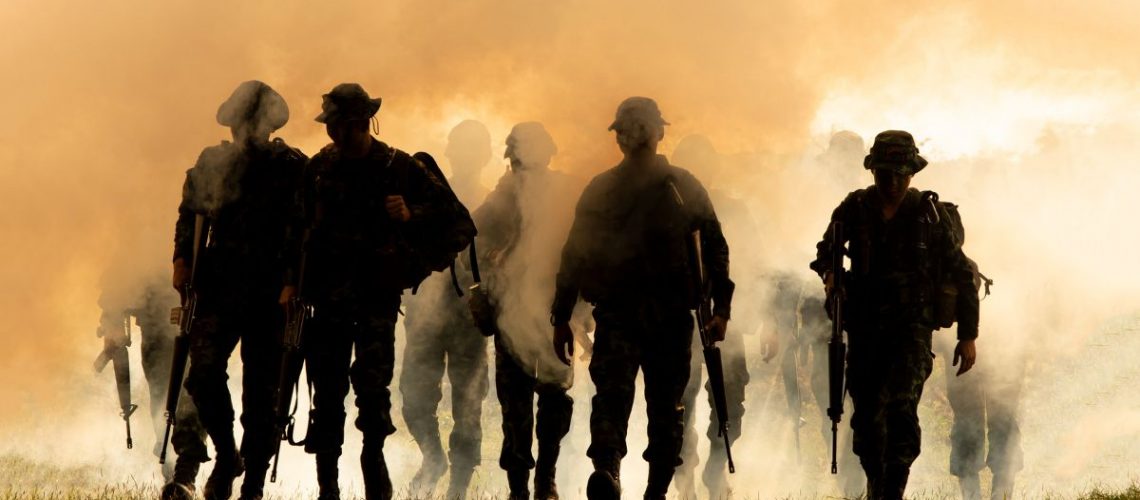The law’s full name, The Sergeant First Class Heath Robinson Honoring our Promise to Address Comprehensive Toxics Act, was initially passed in August 2022. Although its implementation suffered some delays along the way, the bill is one of the largest expansions to VA coverage in the last decade. Under this law, approximately $280 billion in benefits will go directly to veterans of the Vietnam War, the Gulf War, and the post-9/11 conflicts in the Middle East.
Why Does This Bill Matter?
For the average civilian, it is often difficult to picture the true extent of the sacrifices endured by the troops. Their effects often go beyond enlistment, and in some cases, they can leave a long-term or permanent imprint on a soldier’s physical and mental health. However, both veterans and active-duty soldiers often find it difficult to gauge the extent of their suffering or to prove its cause.
One of the most pervasive ways in which this happens is with exposure to Agent Orange and the chemicals from burn pits. Both can dramatically increase the risk of cancers and chronic respiratory failure, even if the damage often takes years to become evident. Over the past decades, nearly three-quarters of all claims involving burn pit exposure were denied, breaking one of the fundamental promises we make to every new recruit.
So what will this piece of legislation mean for veterans? Here are four major takeaways.
1. It will make it easier to prove exposure
Under the PACT Act, veterans will no longer bear the burden of proof when making a disability claim after being exposed to Agent Orange or a smoke pit.
Instead, if they develop one of the 20+ recognized “presumed conditions” linked to these chemicals after serving in an area where exposure is known, the VA will assume their condition was caused by chemical exposure.
2. It covers three types of exposure across three conflicts
The PACT Act will likely be a game changer for the relatively-young vets who served in Iraq and Afghanistan after 9/11.

However, it is not limited to this conflict. It will also recognize any presumptive conditions linked to burn pit exposure for those who served in the original 1990 Gulf War, whether in Iraq, Bahrain, Kuwait, Oman, Qatar, Saudi Arabia, Somalia, the United Arab Emirates, or the airspace above them.
Furthermore, it will also expand the list of presumptive conditions for exposure to Agent Orange for those who served in the Vietnam War – including those stationed in nearby bases in Thailand, Laos, Cambodia, Guam, American Samoa, or Johnston Atoll.
Finally, it also expands coverage for those who were exposed to radiation during cleanup operations at Enewetak Atoll in 1980, Palomares (Spain) in 1966, or Thule Air Force Base (Greenland) in 1968.
3. It can help even if you were denied before
The PACT Act’s expanded coverage also seeks to right the wrongs against those who served in generations past. Many veterans, especially those who served in the 1960s and 1990s, were already denied coverage for their exposure – but if they fall within the umbrella of the PACT Act, they will not be left behind.
According to the Department of Veterans Affairs, they will engage in every effort to contact any vet who was wrongfully denied in the past. Alternatively, veterans whose conditions are now presumptive can file a Supplemental Claim, and have their cases reviewed again.
4. If you move quickly, you can get backdated benefits
The benefits listed by the PACT Act will start on the day the bill becomes law. So if you’ve been struggling with a presumptive condition over the past year, file a PACT Act claim before August 9th 2023. You may be eligible for backdated benefits starting on August 10th 2022.


